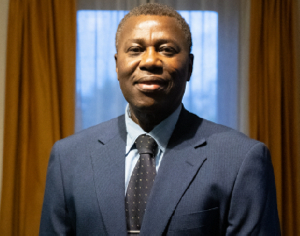The expansion of the free school uniforms programme to cover all public basic schools is one of major factors affecting the effective roll out of the policy, a report by SEND Ghana, a civil society group has said.
The programme, which commenced in 2009 was mainly to support deprived public basic schools and to reduce the cost of education to parents.
To this end, the report titled, “Maximising social protection in education — The Free School Uniform Programme in perspective” has advocated the introduction of measures by the Ghana Education Service (GES) to ensure that the criteria for selecting beneficiary schools and needy pupils were adhered to by implementing agencies.
Discussing the report in Accra yesterday, Harriet Nuamah Agyemang, Senior Programme Officer, SEND Ghana said shift in focus from deprived areas to all schools meant the intervention was thinly spread, failing to achieve its intended purpose.
“Due to this development in the implementation of the policy, there is a likelihood that the intended beneficiaries, per the original design of the programme, may be missed out,” she added.
Other factors identified by the report included lack of distribution guidelines, centralised production of uniforms, fabric procurement challenges and sizes of uniforms.
The report explained that although the GES had indicated that the underlying factor for schools selection was deprivation, checks undertaken revealed that there were no criteria for selecting deprived schools.
“Unfortunately, we did not come across any criteria in the preparation of the report. Supplies officers, directors and circuit supervisors in some districts decided on the beneficiary schools based on their own opinion,” Mrs Agyemang stated.
The GES, she said, must enforce guidelines, if any, for the distribution of uniforms and subsequently made available to regional and district directorates to check the implementation of the intervention.
She explained that the move would prevent over or under supply of uniforms to schools and further ensure adequate uniforms were available for schools that really need them.
To encourage public support in the implementation process, the report called on the Ministry of Education to renegotiate and award fabric contract to local textile producers to boost the textile industry and engage small-scale tailors and seamstresses in its sewing to provide employment opportunities for local entrepreneurs.
Mr Steven Siaka, chairman, Parliamentary Committee on Education and Member of Parliament for Jaman North, said the report was timely as it would assist the Committee in proposing solutions to mitigate challenges disrupting the implementation of programmes designed to improve the educational sector.
Communication lecturer, Professor Kwame Karikari urged the current government to examine the report, free of political biases, to be able to improve the implementation of the programme for national benefit.
General News of Friday, 28 April 2017
Source: ghanaiantimes.com













